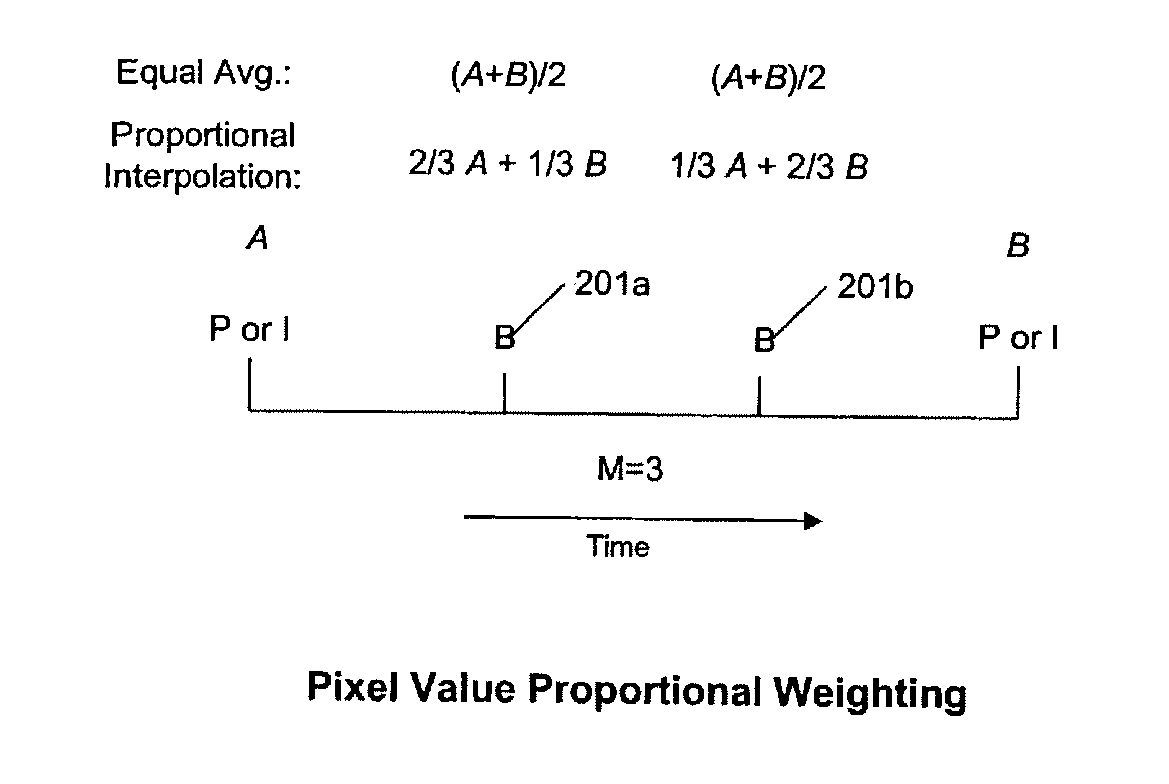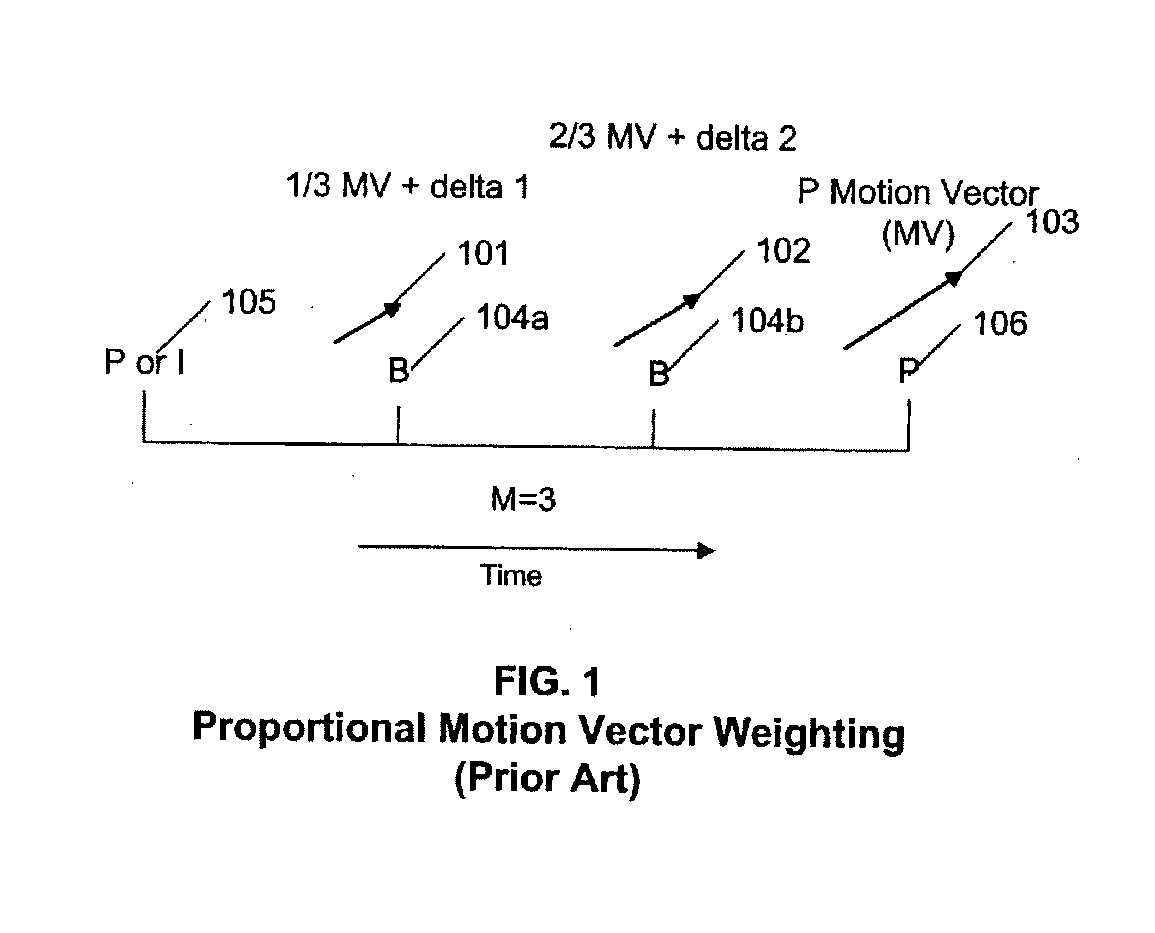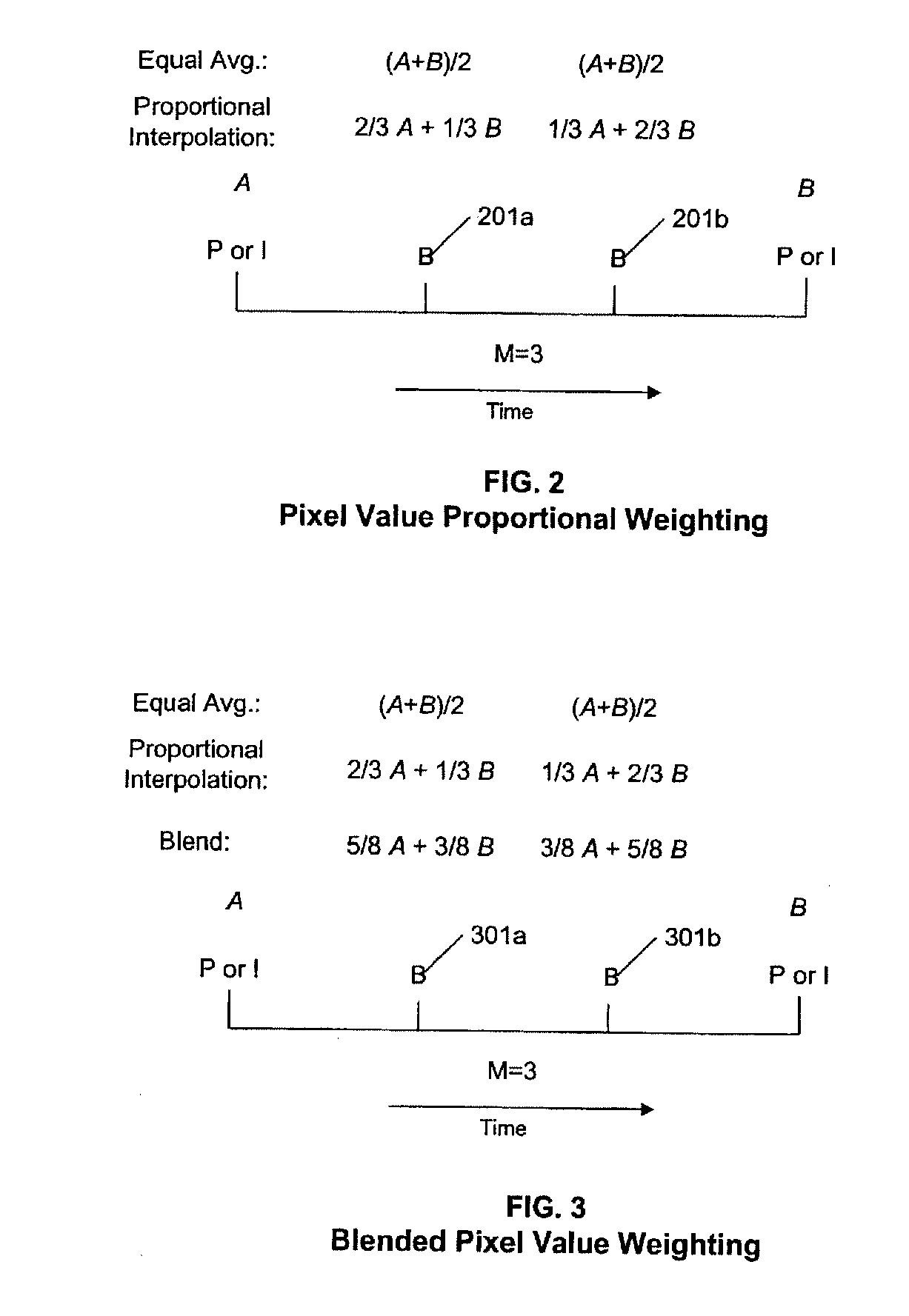Interpolation of video compression frames
a video compression and frame technology, applied in the field of interpolation of video compression frames, can solve the problems of large amount of motion change between p (or i) frames, the ultimate limit of the number of intermediate b frames, and the limitation of the efficiency and coding range of motion vectors, so as to improve the image quality of one or more predicted frames
- Summary
- Abstract
- Description
- Claims
- Application Information
AI Technical Summary
Problems solved by technology
Method used
Image
Examples
example embodiment
FIG. 4 is a flowchart showing an illustrative embodiment of the invention as a method that may be computer implemented:
Step 400: In a video image compression system, for direct and interpolative mode for computing B frames, determine an interpolation value to apply to each pixel of an input sequence of two or more bi-directionally predicted intermediate frames using one of (1) the frame-distance proportion or (2) a blend of equal weighting and the frame-distance proportion, derived from at least two non-bidirectionally predicted frames bracketing such sequence input from a source (e.g., a video image stream).
Step 401: Optimize the interpolation value with respect to an image unit (e.g., a group of pictures (GOP), a sequence of frames, a scene, a frame, a region within a frame, a macroblock, a DCT block, or similar useful grouping or selection of pixels). The interpolation value may be set statically for the entire encoding session, or dynamically for each image unit.
Step 402: Furthe...
PUM
 Login to View More
Login to View More Abstract
Description
Claims
Application Information
 Login to View More
Login to View More - R&D
- Intellectual Property
- Life Sciences
- Materials
- Tech Scout
- Unparalleled Data Quality
- Higher Quality Content
- 60% Fewer Hallucinations
Browse by: Latest US Patents, China's latest patents, Technical Efficacy Thesaurus, Application Domain, Technology Topic, Popular Technical Reports.
© 2025 PatSnap. All rights reserved.Legal|Privacy policy|Modern Slavery Act Transparency Statement|Sitemap|About US| Contact US: help@patsnap.com



